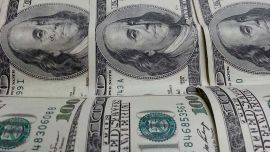Uruguayan President Luis Lacalle Pou has directly accused Argentina and Brazil of blocking a free-trade agreement (FTA) with China, one of his government's key objectives.
In an interview with a local radio station this week, Lacalle Pou did not rule out the possibility of sealing an FTA with China less than a year before the end of his term in office. He stressed that it could be done without the backing of Mercosur, the trade bloc that Uruguay is part of along with Brazil, Argentina, Paraguay, and more recently Bolivia.
However, he explicitly criticised the governments of Luiz Inácio Lula da Silva and Javier Milei in Brazil and Argentina respectively, accusing them of blocking the deal.
"Obviously we couldn't do it, so far. It is not the only way. Now, what has weighed on us is Brazilian diplomacy and Argentine diplomacy with respect to China, which has prevented us from moving forward. That is the reality," he said.
"When I went to China, I told their premier [Xi Jingping]: 'We’re here to advance tomorrow or the day after. We haven’t been able to because our neighbours have gone out of the way to be negative,’" added Lacalle Pou.
The comments highlight disagreements between regional leaders over the future of the trade bloc and cast doubts over the long-trailed EU-Mercosur trade deal, which regained momentum this week after positive comments from Brazil President Lula.
Optimism
Earlier in the week Lula and Spanish Prime Minister Pedro Sánchez had spoke optimistically about the chances of sealing the EU-Mercosur deal, talks over which have been ongoing for two decades.
Hopes were dampened earlier in the year by France’s declared rejection and doubts within the European Commission.
But Lula and Sánchez, both leftists, renewed their optimism in statements to the press after a meeting at the Planalto presidential palace in Brasília.
“We are ready to sign the agreement with the EU,” Lula said.
Paris opposes signing the free-trade agreement, amid protests by French farmers who reject it. Germany, on the other hand, advocates it.
“We are going to sign this agreement for the good of America, for the good of Mercosur and for the good of the European Union ... We have reached a situation in which we need it politically, economically and geographically,” Lula added.
Sánchez said that the invasion of Ukraine and the confrontation with Russia has made the agreement even more necessary for Europe.
“Europe, after the war in Ukraine, has learned the lesson that it must seek new allies and diversify its political and commercial relations,” he noted.
For the Spanish premier, the treaty with Mercosur would not only create the largest free-trade area in the world, it would also unite two blocs with “similarities” in their visions on democracy and the fight against climate change.
“It would be a change even in global geopolitics,” he argued.
During his first visit to Latin America’s largest economy since he came to power in 2018, Sánchez met with Brazilian Congressional leaders, before travelling to São Paulo to attend a business forum.
Spain is the second-largest investor in Brazil, with a volume of US$59 billion dollars, according to the government in Brasilia.
Sánchez also travelled to Santiago to meet with Chilean President Gabriel Boric while in the region.
Uruguay, China and the Mercosur
In November, during Lacalle Pou’s state visit to Beijing, Uruguay elevated its diplomatic links with China to the status of a commercial association.
On July 13, 2022, Lacalle Pou had announced the end of feasibility studies for a free-trade agreement with Beijing, marking the start of a formal bilateral dialogue.
Previously in September, 2021, the Uruguayan president had announced the beginning of conversations with the Asian giant, despite the preponderance of an unwritten rule in Mercosur requiring the approval of all partners before negotiating with third parties. This provoked tensions in the regional bloc dating back to 1991.
At the latest Mercosur summit last December in Rio de Janeiro, Lacalle Pou had defied his partners to come clean over their positions.
"They should tell us: We haven’t the slightest intention of advancing towards a free trade agreement with China.' Then we’ll have shown all our cards and we’ll know what we’re playing at and what to watch out for," he underlined.
Brazil reaffirmed its links with China when Lula started his third term in 2023 after governing from 2003 to 2011.
Argentina’s former president Alberto Fernández (2019-23) confessed that he had called on China to halt the negotiation of the free-trade agreement. His successor, libertarian leader Javier Milei, criticised the ties boosted by his Peronist predecessor but since taking office last December he has maintained good relations with Beijing.
Paraguay, Mercosur’s pro-tempore president for the first half of this year, is one of the few countries still maintaining diplomatic relations with Taiwan.
– TIMES/AFP


























Comments